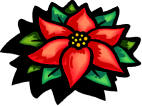Several of you have shown interest in participating in the Learning Segments that have been announced here and through CLICK. We now have schedules, instructions, and registration forms for you to follow. Go to http://www.coloradoadulted.org/LES/LESResources.htm and take if from there.
Colorado Blogging
Below is the address of a blog that a Colorado adult education teacher just started with her students. Here’s what Sue has to say:
"I created this blog for my adult students in order to expand our classroom community beyond its four walls, and to give them the opportunity to write for a real audience. The digital divide is so vast; this is one humble teacher's attempt to cross the chasm. They named their blog "The Beginning Writers,” which is honestly what they are. At least for now, anyway. I can't wait to see the progress they make!"
Those students would love to read a note from some of you. You are invited to take a moment to communicate with them! If you start your own blog with students, please let us know so that we can support your efforts as well!
Questions from the Field
- I am struggling teaching a computer class to a group of beginners. I need to teach English as well as computer skills. I would love to have some ideas for basic and interesting projects that can be easily explained and completed in a reasonable amount of time. Can you lead me to some web-sites or books that could help me? Danielle
Following are a few links to computer lessons that can be adapted for use with students with limited English. In addition, I would suggest using computers to learn English, as follows:
1. Find a few games (There are many!) and assign each student a game. Then have students switch and teach each other the game they just played. Google "online games" and watch the long list appear of free games.
2. Take dialogs from different sites and have student type them out in Word, memorize them, and present them.
http://www.focusenglish.com/dialogues/eating/eatingindex.html is an example of the many dialogs online. Click on one and listen to the dialogs as you read. Google "English dialogs" and watch the lists appear.
3. Have students create booklets in Word about their families, communities, countries, anything. Laminate them and pass them around.http://www.microsoft.com/education/createbooklet.mspx
http://office.microsoft.com/en-us/word/HP030729501033.aspx4. Place the beginning of a story in Google shared documents and have students add to the story.
5. Copy and paste cartoon images into Word and have students fill in the bubbles.
http://www.nationalgeographic.com/kids/ngo/cartoons/more.html - You can do this one right online. Lots of fun!!! Do a Google search on “free clipart.” Copy and paste or save as images. Place into a Word document. Use the drawing tools in Word or any MS application to add “think” and “talk” bubbles. Students enter the dialog. They have lots of fun doing that.REFERENCES TO GOOD IDEAS AND RESOURCES
http://tech.worlded.org/docs/cesol/lessons.htm - Click through the ideas, articles and links to resources. Cool. Includes lesson ideas, using podcasting and blogging, and more.
http://www-tcall.tamu.edu/newsletr/dec98/dec98b.htm - Integrating Computer Skills into Low Level ESL, article from 1998, but has some goodies.
COMPUTER LESSONS/TUTORIALS
1. http://www.nwlincs.org/CompTech/toc.htm - for ABE but adaptable.
2. http://www.tefl.net/esl-articles/esl-computers.htm - check it out.
3. http://www.teacherweb.com/mn/mlc/computer - not on teaching computers but contains some entertaining ideas.
4. http://www.learning.com/easytech/tic_lessons.htm - very easy FLash lessons for kids, but I didn't think they were too childish, especially if you prep your students. Take a look.
5. http://www.caaelii.org/action_download_valid.htm#Lesson1 - Each lesson has a simple Power Point presentation along with a teacher plan. Even though these were written for older systems, you could easily adapt them to the newer ones, adding the changes in newer versions.
6. http://www.umuc.edu/distance/odell/ctla/basic_skills/ - a little wordy in the intro, but the lessons have lots of graphics.
7. http://www.umuc.edu/distance/odell/ctla/basic_skills/ - lots of interesting links to good ideas.
8. http://www.iel.spokane.edu/weblessons/computerlab/generalclasses.html - for you to get ideas. Too wordy for students.
9. http://www.themlc.org/compskills.html - links to resources that look very helpful.



